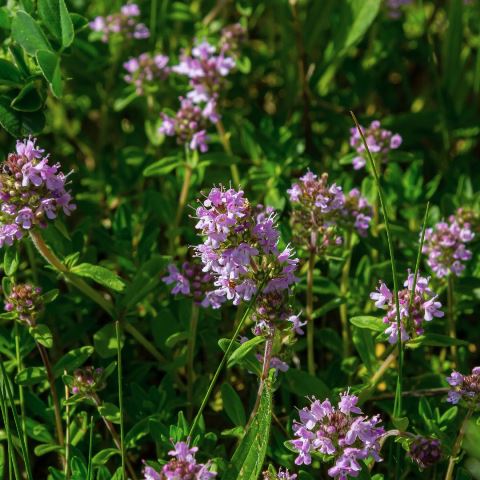Thyme (Thymus vulgaris) loves dry, sunny terrain and is a strongly aromatic plant. In many traditions, it has been used for ritual, healing and culinary purposes.
The essence can be used in all cases when energy and recuperation are needed.

Its pungent, aromatic, balsamic and often phenolic fragrance invigorates both mentally and physically.
It is an essential oil for people who need to recover in all senses, both physically and emotionally. In the Hippocratic tradition it is considered Warm and Dry; the plant used as a seasoning spice can be used in the cold season to recover ‘inner warmth’. In Ayurveda, thyme is recognised as having anti-Kapha properties, i.e. warm and compensating for dampness and stagnation. At the same time, people with a Pitta structure should be careful when using it as it can be too strong.
There are several thyme essential oils in aromatherapy, and one of the most widely used is Thymus vulgaris ct. linalool. Diffused in the room, or just a few drops for a foot bath (a couple of drops in a tablespoon of coarse salt) can be supportive in all cases of deep inner and physical fatigue; it has balsamic, antibacterial and antiviral properties, and it is also suitable in winter for people who suffer from cold weather and need a warm, pulsating energy.
